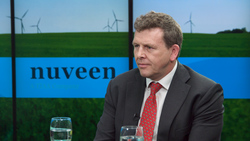The Asset | 24 August 2020
Farmland piques global investor interest amid pandemic
by Bayani S Cruz
While farmland has long been considered a safe-haven investment, the Covid-19 pandemic and a general trend towards environmental, social, and governance (ESG) investing are pushing more institutional investors, particularly pension funds, to look more closely at this alternative asset class.
Two factors are driving this push. First, farmland has performed well in times of crisis exhibiting durable valuations and attractive levels of income, both of which are uncorrelated to competing assets. Second, financial yields from farmland are tied to food prices, which have not been negatively impacted during previous pandemics, and they have been supported by stable supply-demand dynamics to date in the current pandemic.
“We’re definitely seeing a significant pick-up in interest from potential investors globally,” says Martin Davies, chief executive officer and president of Westchester, a global farmland asset manager with US$8.2 billion of farmland assets under management (AUM) and an affiliate of Nuveen, one of the world’s largest asset managers with US$1 trillion in AUM.
In July, Nuveen completed the US$150 million first close of its US$400 million global impact strategy designed to tackle income inequality and climate change. The strategy seeks to drive positive change in two critical sustainable development goals, namely, inclusive growth and resource efficiency. The strategy will target a 40% to 60% allocation to each theme.
In 2019, Nuveen also raised US$464 million for its global farmland strategy, a fund which targets a 7% to 9% rate of return by acquiring farmland in the US, Australia, New Zealand, Brazil, Poland, Romania, and Chile. The fund focuses on deals averaging US$20 million to create a balanced portfolio between row and permanent crops, with it’s first four investments to be farmland in California.
Martin says Nuveen is currently fund raising for another farmland strategy but declined to give further details until the fund is launch.
“What is driving that interest is an understanding that investors are looking for a durable and resilient asset class to diversify portfolios away from equity and other real assets,” Davies adds in an interview with The Asset. “Also, farmland investments can be expected to remain a strong inflation hedge.”
Farmland, he notes, has been uncorrelated to the economic cycle and it experiences substantially less volatility compared with broad market indices and traditional asset classes.
Because of the pandemic, over the next 12 to 18 months, certain assets –such as retail and office real estate, some infrastructure tied investments, and airports and toll roads – are facing severe headwinds, Davies points out.
“That’s not the case with farmland, and that’s why we’ve seen renewed interest in the asset class as the characteristic situation is fundamentally attractive,” he states. “We do not expect to see a downturn in the returns.
“If we go back to previous economic downturns like the tech bubble in the early 2000s and the [2008-2009] global financial crisis, farmland returns, using the NCREIF Farmland Index as a reference, stayed very strong.”
As a result of its superior risk-weighted return, farmland can be viewed as a powerful diversifier within an investment portfolio. Farmland’s low volatility becomes particularly valuable in periods of financial uncertainty. And, in periods of economic adjustment, the asset, unlike other financial products, has proven to be extremely resilient.
US farmland, in particular, has delivered only one quarter of negative returns since 1999 (-0.01% in the first quarter of 2002). Importantly, during periods in which the S&P 500 declined, farmland delivered positive returns.
With the spread of Covid-19, there are concerns that food security could be jeopardized. However, there is no current evidence to validate this concern. During other pandemics, including SARS, the avian influenza, and MERS, food prices rose. This current pandemic has not yet caused food shortages or significant price hikes.
Prices for staple crops like wheat, maize, and rice have remained relatively stable since the Covid-19 outbreak. Historically, economic slowdowns have not materially impacted the demand for basic food commodities.
For all of these reasons, farmland seems a safe and stable place to look for opportunity and diversification in these uncertain times.













